Content warning: mentions of suicide.
After a month of moustache-growing to raise awareness for men’s health, ‘Movember’ has come to an end. What started in Australia in 2003 as a charity campaign, Movember has since expanded internationally with a larger focus on prostate cancer, testicular cancer, and mental health and suicide prevention.
Movember aims to destigmatize the conversations surrounding men’s health. It’s simple to participate in the movement: just grow a ‘mo’ — a moustache.
University of Toronto faculty and students shared their experiences with the movement and their stories of personal purpose and growth — all while showing off their top-notch moustaches that have grown alongside them.
Maximilian Casuba
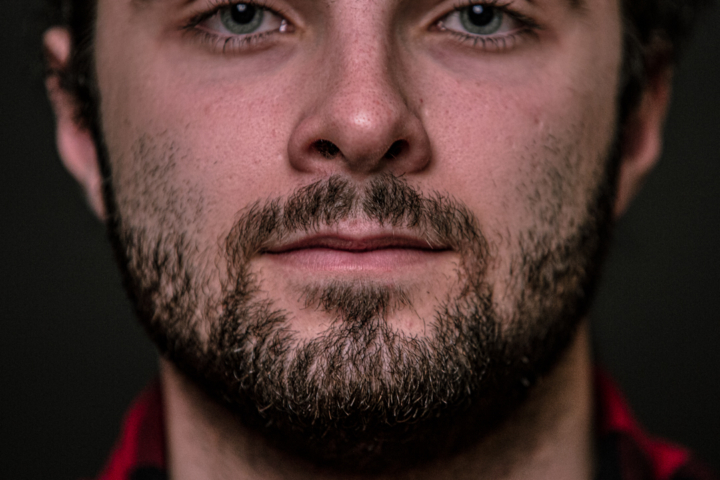
Maximilian Casuba is a U of T student studying political science and history. He hopes to go to law school after graduating, but is keeping his options open.
DINA DONG/THE VARSITY
The beard and moustache have been part of Maximillian Casuba’s regular look since he was in ninth grade, so it’s nothing new. Casuba’s Movember routine consists of a little bit of shampoo when he showers, or just a splash of water. He shaves off his neckbeard and trims his facial hair as needed.
However, his experience with Movember goes beyond just participating in the movement. Casuba lost his father to liver cancer last year, and dedicates his mo to his father every year. Last Movember, Casuba let his beard grow freely to commemorate the passing of his father, who first taught him to shave his peach-fuzz in seventh grade.
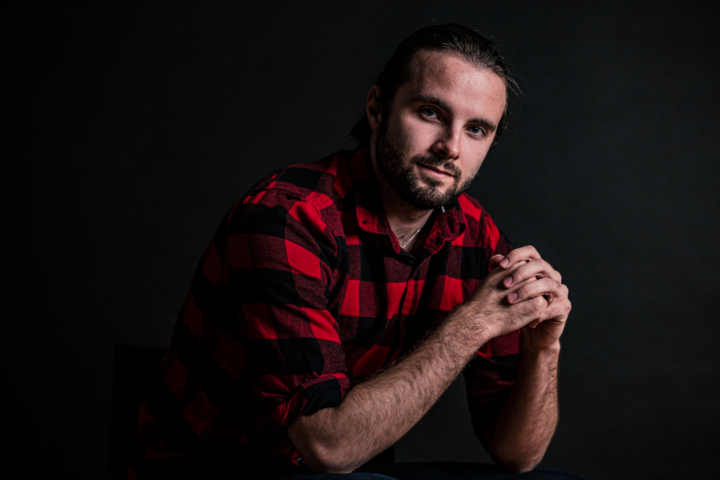
DINA DONG/THE VARSITY
Casuba expressed that although dedicating a month to raise awareness on men’s health is great, he wants to remind us that cancer is a year-round problem. According to the Canadian Cancer Society, cancer is the number one leading cause of death in Canada.

DINA DONG/THE VARSITY
“Cancer should be acknowledged year round,” Casuba said. “I think it’s nice to hear that there’s this one month dedicated to it too, especially November because it’s bloody cold outside. We have this little scarf,” he explains while pointing at his beard.
Mado Ghazal
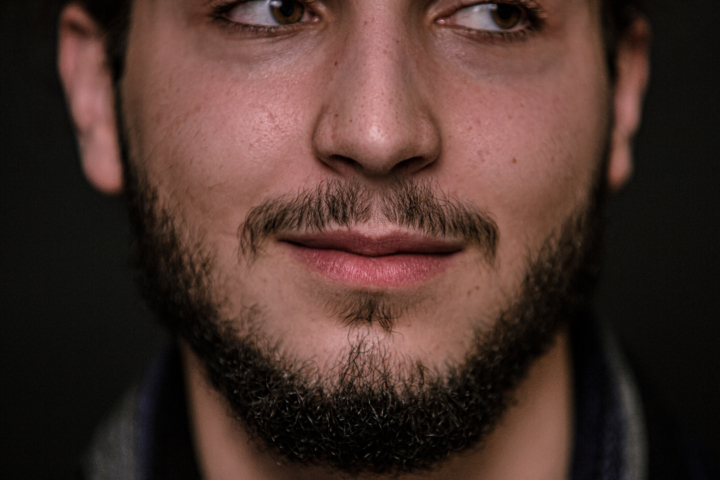
Mado Ghazal is a Rotman Commerce student. Ghazal shares his experience growing up in Lebanon, Dubai, and Toronto, all of which shaped his understanding and meaning of men’s health and masculinity.
DINA DONG/THE VARSITY
Mado Ghazal’s moustache routine is easy. He conditions and brushes it with a special moustache brush. Facial hair is nothing new to him, but the length is.
Ghazal has a personal connection to Movember, as his grandfather was a victim of prostate cancer. However, the month also means more to him beyond prostate cancer: Ghazal wanted to emphasize that it is also dedicated to raising awareness around mental health — a commonly overlooked problem amongst men.
According to the Public Health Agency of Canada, the suicide rate among men is three times higher than women. That being said, it does not mean that other individuals are not prone to experiencing similar struggles with their mental health.

DINA DONG/THE VARSITY
Ghazal believes that a contributing factor to the statistic is the ‘male archetype’ that men have to uphold. Growing up, Ghazal felt pressured to obtain the ‘typical’ muscular male body. “I was super skinny and I went through a lot of mental hurdles to actually look in the mirror to say this is okay,” he shared.
“I’m not at where I want to be right now, and this is fine.”
“There’s a lot of… physical standards that men are held up to that affect them,” he continued. “Body image issues, [they’re] not just something that’s faced by women; [they’re] something faced by everybody.”

DINA DONG/THE VARSITY
In addition to aesthetics, he discussed the social status that men are expected to achieve in Dubai, where he used to live: the “stereotypical ‘breadwinner’ social norm for men,” where all men are expected to work. If he isn’t working, then “it’s considered weird in the society [that Ghazal] grew up in.”
He believes that one of the important conversations we should have is men’s health and masculinity. He noted, however, that this is not a matter of men’s health being “more important,” but rather working together with other societal issues to come up with better solutions through open-minded conversations.
Professor Charlie Keil
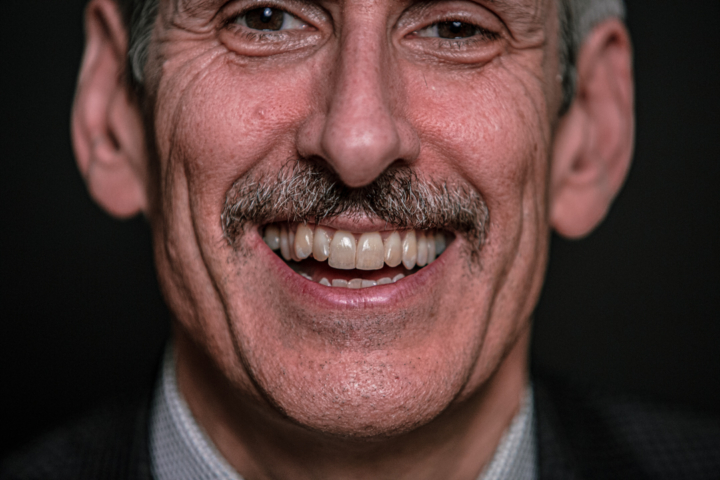
Charlie Keil is a professor at the Department of History and Cinema Studies Institute, and he has been the Principal of Innis College for five years. DINA DONG/THE VARSITY
Professor Charlie Keil usually keeps a clean-shaven face, so the moustache is quite foreign to him in November. Although he’s not fond of it, he knows that it is for a good cause. His care routine is quite simple: he doesn’t have one. Keil reminds himself that the mo is not necessarily meant to be aesthetically pleasing.
Keil has been participating in Movember for a couple of years now. Since he is currently teaching a larger full-year course, he decided to take the opportunity to raise awareness and money through his students.

DINA DONG/THE VARSITY
The professor has been highlighting to his students that Movember is a time to raise awareness about mental health. Keil, although he is no expert, mentioned that there are barriers to men seeking help for mental health because of the social norms of masculinity.
The American Psychological Association (APA) published a podcast explaining that a correlation exists between ideas of masculinity and the likelihood of men reaching out for support. Although masculinity norms are relative to different cultures, societies, and situations, some norms expect men to restrain from expressing their emotions, which in turn prevents them from seeking help.
The APA recently released a new set of guidelines for psychological practice with boys and men. Although males “tend to hold privilege and power based on gender, they also demonstrate disproportionate rates” of issues, ranging in areas such as mental and physical health problems.
Through Movember, Keil hopes to liven this conversation among his students because he believes that everyone can play a part in the discussion on mental health. “The university has the greatest responsibility, because it’s the custodian of the students who are here, and the well-being of students is the university’s top priority,” Keil said. “But I think we all need to… [help] to ensure that the mental health of all the students is as well maintained as it can be.”

DINA DONG/THE VARSITY
Professors need to be aware of their actions, and administrators need to make their best efforts, but Keil also emphasized that students need to play a part as well. He believes that “we all need to be cognisant” — students need to be aware of their own mental health as well as that of their peers.
He continued on to explain that sometimes reaching out will have a positive effect “because part of [the problem] is isolation and not feeling connected.”
“If this can do a little bit toward helping raise that issue with students, then it’s totally worth the 30 days of bristliness,” he concluded, pointing at his moustache.
Andrew Paul Raya
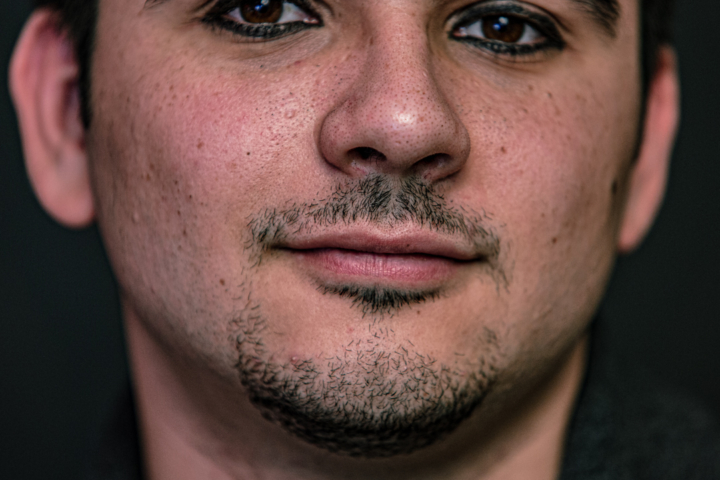
Andrew Paul Raya graduated from U of T, where he specialized in psychology. Raya is currently taking non-degree courses related to social work and sexual diversity studies at the University of Toronto and York University. Raya is genderqueer, and prefers he and him or they and them pronouns. DINA DONG/THE VARSITY
While facial hair is widely associated with masculinity relative to cisgender men, Andrew Paul Raya does not see his facial hair as a representation of his gender identity. However, for November, he believes that the moustache is important to help raise awareness.
Raya has been participating in Movember since he was a teenager, when he would grow a goatee every year. Raya’s routine is simple but comes with challenges due to his sensitive skin. Aside from a little bit of hot water on the areas where he is going to shave, Raya uses nothing else to maintain his Movember look.

DINA DONG/THE VARSITY
Raya is currently the president of the St. Michael’s College LGBTQ+ group, which he founded with his fellow executives. He is also involved in a male-identifying ally work group at York University, which focuses on challenging “toxic masculinity,” the behaviour expected by males where they appear strong and expressionless. Through this work, he is trying to destigmatize gender stereotypes and emphasized that masculinity does not always have to be ‘toxic.’
On the topic of masculinity, Raya expressed that when he was using only he and him pronouns, he found that being masculine meant being strong, showing little emotion, and engaging in sports. Raya noted, however, that these are traits that “don’t exactly define a gender.”
Today, Raya believes that masculinity is defined by what someone believes it to mean. “If you feel comfortable calling yourself masculine, [then] that’s what really matters at the end of the day,” he said.

DINA DONG/THE VARSITY
In addition to challenging gender stereotypes, Raya also hopes that through his moustache, he can remind people that cisgender men are not the only ones affected by the illnesses that Movember brings awareness to, such as prostate and testicular cancer. “There are individuals who don’t use he and him pronouns but are also affected.” he said. “Men alone don’t have moustaches.”
“Cancer doesn’t have a face, it doesn’t have a gender,” he continued. Movember, to Raya, is also a time to remind people that there are individuals — regardless of their identity or gender — that are being affected by cancer.
“Movember is a cause,” he said, “not just an image.”
If you or someone you know is in distress, you can call:
- Canada Suicide Prevention Service phone available 24/7 at 1-833-456-4566
- Good 2 Talk Student Helpline at 1-866-925-5454
- Ontario Mental Health Helpline at 1-866-531-2600
- Gerstein Centre Crisis Line at 416-929-5200
- U of T Health & Wellness Centre at 416-978-8030.
Warning signs of suicide include:
- Talking about wanting to die
- Looking for a way to kill oneself
- Talking about feeling hopeless or having no purpose
- Talking about feeling trapped or being in unbearable pain
- Talking about being a burden to others
- Increasing use of alcohol or drugs
- Acting anxious, agitated, or recklessly
- Sleeping too little or too much
- Withdrawing or feeling isolated
- Showing rage or talking about seeking revenge
- Displaying extreme mood swings
The more of these signs a person shows, the greater the risk. If you suspect someone you know may be contemplating suicide, you should talk to them, according to the Canadian Association for Suicide Prevention.


